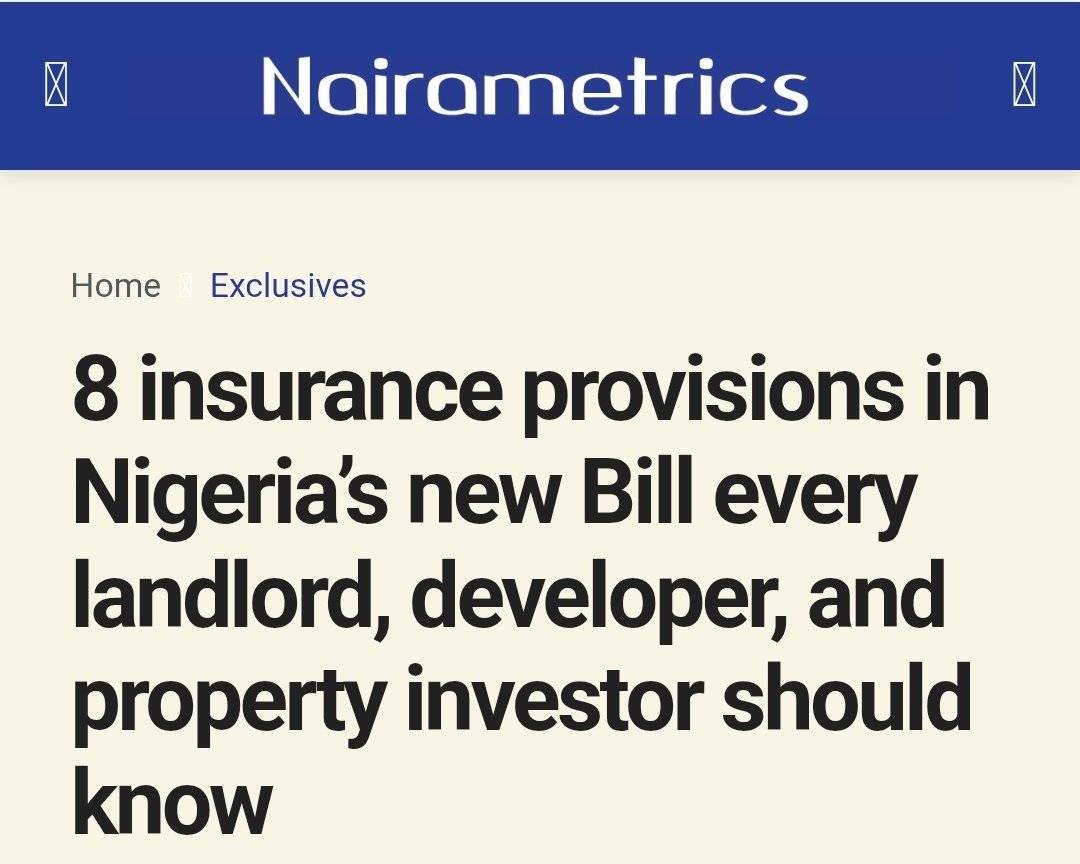FALSE 🚫🚫❌️❌️
Breakdown: 👇
What’s actually in President Tinubu’s tax reforms?
1. Tax Reform Laws Signed and Effective January 1, 2026
President Bola Tinubu signed four landmark Tax Reform Acts on June 26, 2025, which will take effect from January 1, 2026.
Breakdown: 👇
What’s actually in President Tinubu’s tax reforms?
1. Tax Reform Laws Signed and Effective January 1, 2026
President Bola Tinubu signed four landmark Tax Reform Acts on June 26, 2025, which will take effect from January 1, 2026.
https://twitter.com/neo_officialll/status/1955936385484943370
2. Personal Income Tax (PIT) – Exemption & Progressive Rates
Contrary to claims of a flat 11–20% taxation across the board:
Individuals earning ₦800,000 or less per year will be completely exempt from PIT .
Contrary to claims of a flat 11–20% taxation across the board:
Individuals earning ₦800,000 or less per year will be completely exempt from PIT .
For those earning above ₦800,000, a progressive tax rate structure applies, with maximum rates up to 25% depending on income level .
The rumored flat 11–20% on anyone earning ₦800k+ annually is inaccurate. The real system is tiered and progressive.
The rumored flat 11–20% on anyone earning ₦800k+ annually is inaccurate. The real system is tiered and progressive.
3. VAT, Revenue Sharing & Other Reforms
VAT remains at 7.5%, not 12.5% as some proposals suggested. However, there are expanded exemptions for essentials such as food and medicine .
The reforms include a major overhaul of tax administration, creating a unified
VAT remains at 7.5%, not 12.5% as some proposals suggested. However, there are expanded exemptions for essentials such as food and medicine .
The reforms include a major overhaul of tax administration, creating a unified
Nigeria Revenue Service (NRS) and simplifying the tax code via the Nigeria Tax Act and others .
They also introduce mechanisms like a Tax Ombudsman, input VAT recovery, and zero-rating of essential goods to ease the tax burden on low-income earners .
They also introduce mechanisms like a Tax Ombudsman, input VAT recovery, and zero-rating of essential goods to ease the tax burden on low-income earners .
Bottom Line:
No, Tinubu does not plan to impose an 11–20% flat tax on all Nigerians earning ₦800k and above.
The new tax law exempts the lowest earners (≤ ₦800,000/year) and applies a progressive PIT structure for income above that—rates reach up to 25%, not capped at 20%.
No, Tinubu does not plan to impose an 11–20% flat tax on all Nigerians earning ₦800k and above.
The new tax law exempts the lowest earners (≤ ₦800,000/year) and applies a progressive PIT structure for income above that—rates reach up to 25%, not capped at 20%.
These reforms aim to broaden the tax base, simplify administration, and improve efficiency—not to "tax Nigerians to death."
What you can do:
Review your income bracket and calculate how these reforms will impact you.
Keep track of official announcements and clarifications from the Nigeria Revenue Service.
Review your income bracket and calculate how these reforms will impact you.
Keep track of official announcements and clarifications from the Nigeria Revenue Service.
You can also engage with local representatives or platforms advocating for fair tax policies if you’re concerned about fairness and transparency.
Your post is false. I hope this breakdown helps you with clarity.
Your post is false. I hope this breakdown helps you with clarity.
• • •
Missing some Tweet in this thread? You can try to
force a refresh





